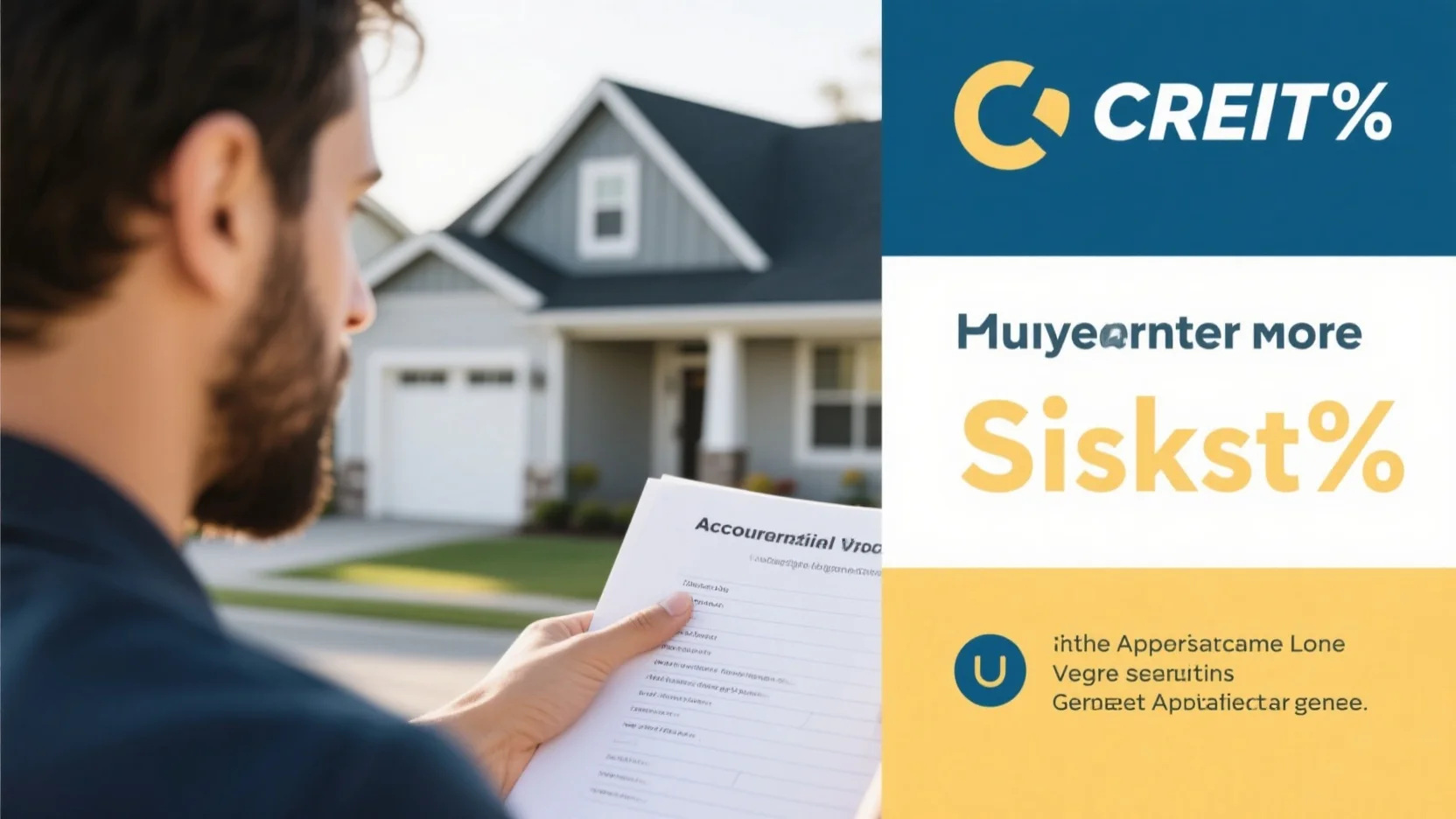
The Hidden Obstacles for Self-Employed Individuals in Mortgage Applications

Image Source: pexels
If you’re self-employed like me, getting a mortgage is hard. Lenders often think we are risky borrowers. Did you know almost half of self-employed mortgage applications—49%—get denied? Compare that to people with regular jobs, and it’s clear we face special problems:
| Category | Rejection Rate |
|---|---|
| Self-Employed Individuals | 49% |
| Traditionally Employed | N/A |
Why is it so difficult? Here’s what lenders usually say:
- Income Fluctuations : Our income changes from month to month.
- Documentation Difficulties : We need more paperwork, which can be confusing.
- Increased Risk Perception : Lenders ask us for higher credit scores.
But don’t stress. With the right plan and the best mortgage lenders for self-employed individuals, you can handle these problems.
Key Takeaways
- People who work for themselves get denied mortgages 49% of the time. This happens because their income changes and paperwork is hard to prove.
- Keeping clear money records and raising your credit score helps a lot. These steps make it easier to get a mortgage.
- Choosing a lender who knows how to help self-employed people can make the process easier and boost your chances.
Key Challenges for Self-Employed Borrowers
Income Fluctuations
Being self-employed means your income can change a lot. One month you might earn a lot, but the next month could be tough. Lenders don’t like this because it’s not steady. They usually check your average income from the last two years. If your income drops suddenly, they get worried. This makes it harder to show you can pay your mortgage.
Some jobs, like sales or finance, have even bigger income swings. For example, people selling stocks can make between $35,320 and $204,130 a year. That’s a huge difference! No wonder lenders feel unsure when they see such big changes.
Documentation Difficulties
Getting a mortgage when self-employed means lots of paperwork. Lenders want two years of tax returns for you and your business. They also ask for bank statements, profit and loss reports, and sometimes letters from clients. It’s a lot to organize.
It’s even harder if you take many tax deductions. Deductions lower your taxes but also make your income look smaller. This can hurt your chances of getting approved for a loan.
Lender Risk Perception
Lenders think self-employed people are riskier than those with steady jobs. Why? Because our income isn’t always stable. They also worry about business problems or high costs making it hard to pay. To feel safer, they might ask for a bigger down payment or higher credit score.
Some lenders work mainly with self-employed people. These lenders understand our struggles and can make the process easier. Finding one of these lenders can really help.
The Role of Credit Scores in Mortgage Applications
Credit Score Requirements for Self-Employed Borrowers
When I started learning about mortgages, I saw credit scores matter a lot. For self-employed people, lenders often have stricter rules. Most lenders want a credit score of 620 or more. Some might even ask for 660 or higher.
A good credit score tells lenders you’re trustworthy. It helps them feel sure you’ll repay the loan. If your score is under 620, getting approved is much harder.
Tip : Don’t worry if your credit score is low. You can raise it by paying bills on time, keeping credit card balances small, and checking for mistakes on your credit report.
Common Credit Score Issues and Solutions
Self-employed people have special problems with credit scores. One big issue is our finances are more complex than regular workers. Lenders often ask for extra papers like profit and loss reports, bank statements, and client letters. This can feel like a lot to handle.
Another problem is income changes. If your income isn’t steady, lenders may think you’re risky. Did you know 73% of self-employed people with credit scores under 700 get denied? That’s a tough fact to accept.
What can you do? Start by organizing your financial papers. Make sure they’re correct and updated. Also, work on improving your credit score. Pay bills on time, keep credit use low, and avoid too many credit checks.
Note : Some lenders have special loans, like bank statement loans, which can help self-employed borrowers.
Ways to Get a Mortgage When Self-Employed
Keep Your Financial Records Organized
Organizing your financial records is very important. Lenders need to see clear details about your income and expenses. This includes updated tax returns, profit and loss reports, and bank statements. If you take many tax deductions, be cautious. Deductions lower your taxes but can make your income seem smaller to lenders.
Set time aside each month to check your finances. Use accounting tools or hire an expert if it feels too hard. Having neat records will make getting a mortgage much easier.
Boost Your Credit Score
Your credit score is very important for mortgage approval. Here’s what you can do to improve it:
- Look for errors on your credit report and fix them.
- Pay all bills on time, like loans and credit cards.
- Keep credit card balances low—under 30% of your limit.
- Don’t open new credit accounts before applying for a loan.
Improving your credit score takes time, but it’s worth it. A better score helps you get approved and may lower your interest rates.
Save More for a Down Payment
Saving for a bigger down payment helps a lot. Putting down 20% or more means you borrow less money. It also lowers your loan-to-value ratio, making you less risky to lenders.
If saving that much feels hard, don’t worry. Start small and save over time. Showing you have savings can still help. Lenders like to see you’re ready financially.
Find the Right Lender
Choosing the right lender is very important. Some lenders work mostly with self-employed people and understand their needs. Here are some good options:
- Rocket Mortgage: Easy to use and flexible.
- New American Funding: Fast and offers many loan types.
- Truss Financial: Good for asset depletion loans.
- Guaranteed Rate: Great service for self-employed borrowers.
- LoanDepot: Offers flexible loan choices.
A mortgage broker can also help. They’ll look at your finances and match you with the best lenders. Always ask lenders if they have experience with self-employed clients.
Getting a mortgage while self-employed can be tough, but doable. Being ready helps a lot. Keep your money records neat and clear. Work on raising your credit score and save more money for a bigger down payment. Look for lenders who know how to help self-employed people. The best ones understand our needs and make things easier.
Tip : Ask a mortgage broker or accountant for help. They can guide you and find the right lender for you.
FAQ
What documents do I need for a self-employed mortgage application?
You’ll need tax returns, bank statements, profit and loss reports, and possibly client letters. Keep everything organized to make the process smoother.
Can I get a mortgage with less than two years of self-employment?
It’s possible, but harder. Some lenders accept one year of self-employment if you have a strong financial history or work in the same field.
Do self-employed mortgages have higher interest rates?
Not always! If your credit score is good and you meet lender requirements, you can qualify for competitive rates. Shop around to find the best deal.
Tip : Always ask lenders about their experience with self-employed borrowers. It can make a big difference in your approval process!
